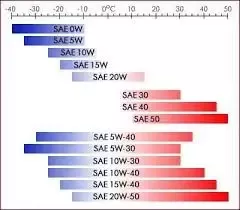Crankshaft noise in engines can be a sign of underlying problems. Let’s explore the causes, effects, and solutions related to crankshaft noise:
- Definition and Function of a Crankshaft:
- The crankshaft is an essential engine component that transforms the pistons’ reciprocating action into a rotating motion.
- It’s made of high-strength steel and consists of main journals and connecting rod journals.
- The crankshaft transfers power generated during combustion to the drivetrain, propelling the vehicle forward.
- Additionally, it helps balance the engine, reducing vibrations for smooth operation.
- Role in Engine Performance:
- The crankshaft significantly influences engine performance:
- Power Output: A well-designed crankshaft efficiently transfers power from combustion to the drivetrain, resulting in higher horsepower and torque.
- The crankshaft significantly influences engine performance:
- Types of Crankshaft Noise:
- When the crankshaft malfunctions, it can produce various noises:
- Knocking: Caused by worn-out bearings or misaligned components.
- Rattling: Often related to insufficient lubrication.
- Grinding: Occurs due to misaligned or damaged parts.
- When the crankshaft malfunctions, it can produce various noises:
- Common Causes of Crankshaft Noise:
- Worn-Out Bearings: Over time, crankshaft bearings can wear out, leading to knocking or rattling sounds.
- Misaligned Components: Improper alignment can cause noise.
- Insufficient Lubrication: Lack of proper oil supply affects bearing performance.
- Importance of Prompt Inspection:
- If you notice unusual noises from your engine, consult a professional mechanic promptly.
- Identifying and addressing crankshaft noise early prevents further damage.
Remember, a healthy crankshaft ensures optimal engine performance. Regular maintenance and timely repairs are essential!
Read More:


